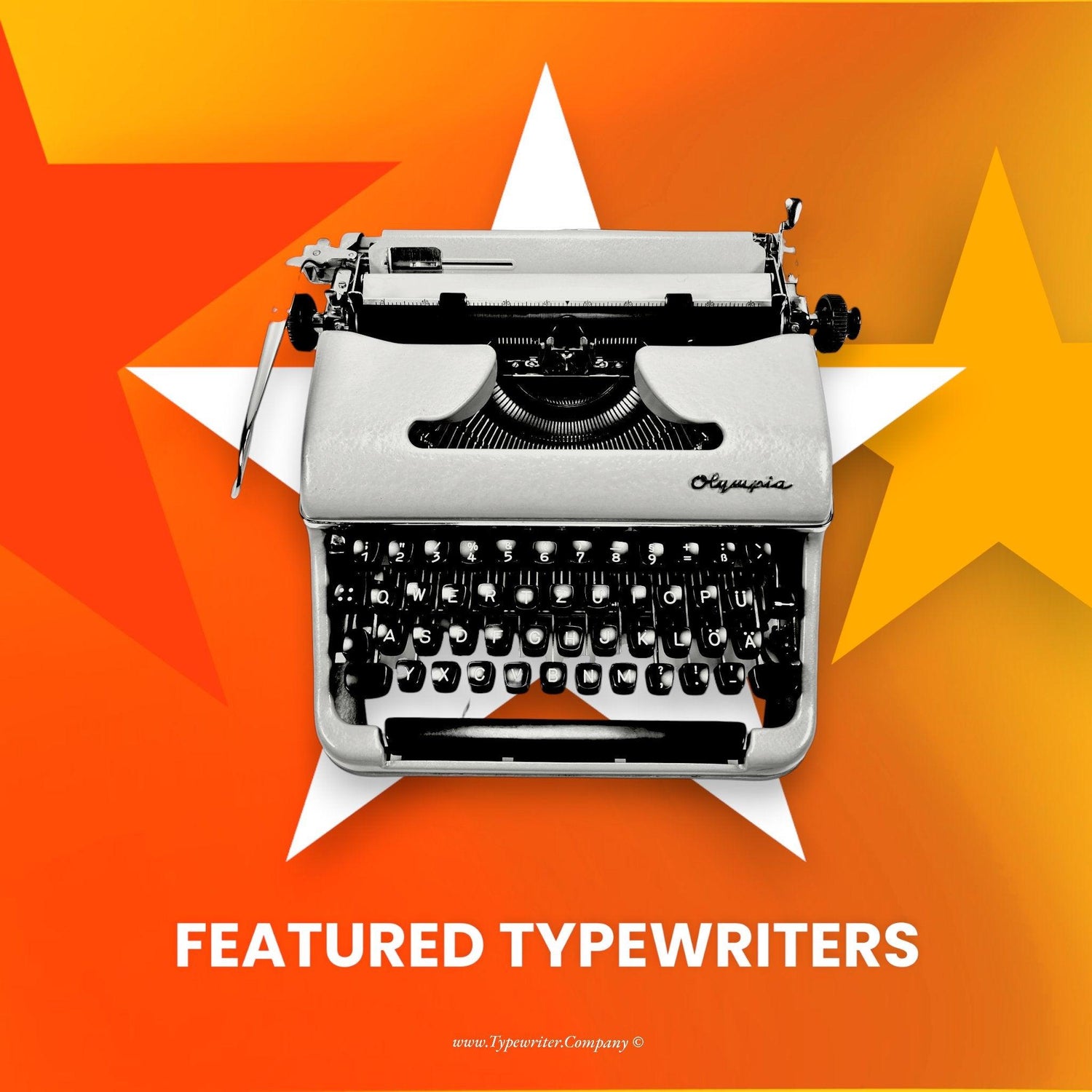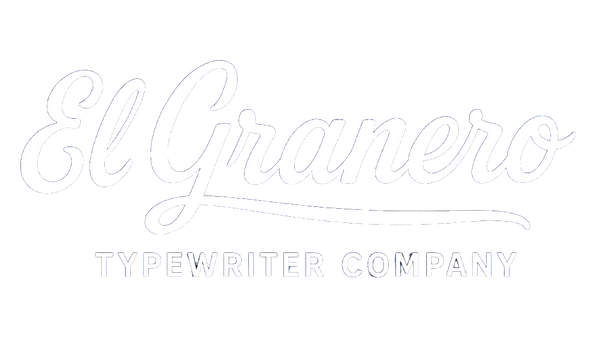
Will the revolution be typewritten?
Share
Will the revolution be typewritten?
In an era defined by rapid technological progress that continuously drives our society forward, it may appear paradoxical to advocate for the timeless charm of typewriters.Yet within these words lies a captivating paradox, inviting us to reconsider our relationship with progress and reflect on the impact of our choices. The statistics paint a stark picture of our present reality.

Over the past few decades, our population has swelled, economies have surged, and international trade has soared to unprecedented heights. However, amidst this whirlwind of growth, nature has suffered greatly, with biodiversity declining at an alarming rate. Our insatiable appetite for food and energy remains the primary catalyst for this devastation. In the face of such profound challenges, the concept of "transformative change" emerges as a clarion call to action. It beckons us to reevaluate every facet of our interaction with the natural world, urging us to slow down, pause, and reflect on the choices we make each day.

And here, amidst this plea for change, lies the unexpected suggestion: we need typewriters more than ever. The typewriter, an icon of a bygone era, offers us both a tangible and metaphorical way to reshape our collective future. In an age dominated by the frenetic pace of digital technology, the typewriter stands as a symbol of intentionality, reminding us to be deliberate in our actions. Using a typewriter daily is not merely an act of nostalgia; it becomes a deliberate act of mindfulness.

The pandemic, too, forced us to stay at home, to look up from our screens, to slow down, and to think deeply about our lives and the world around us. As the world came to a halt, many of us rediscovered the simple pleasures of writing—putting pen to paper or fingers to keys. In this time of isolation, we turned inward, reconnecting with nature and with the art of thoughtful communication. The typewriter, with its steady rhythm, became a tool for reflection, a way to process our thoughts and feelings in a world turned upside down.

With each press of a key, we engage with a machine that demands our presence and attention. The tactile experience of striking metal against paper reconnects us with a physicality often forgotten in the digital realm. We are reminded of the power and responsibility we hold at our fingertips. By shaping the future of our planet with typewriters, we symbolically reshape our relationship with nature. We embrace a slower, more intentional way of being. The typewriter becomes a catalyst for change, a vessel through which we manifest our commitment to sustainability and environmental stewardship.

The typewriter also offers us a return to clarity and depth in communication. In a world where shortcuts, memes, and poor language have become the norm, the typewritten page stands as a bulwark against the erosion of meaningful expression. It challenges us to write with intention, to craft our words carefully, and to engage in communication that transcends the superficial. No longer are letters never sent, novels never finished. Upon a typewritten page, hopeful poems will never again go unread. Thanks to you, the magic continues! Once forgotten, these remarkable machines are rising from the dust and fighting once more for a better world!

In the end, the call to use typewriters daily is not a rejection of progress or an endorsement of outdated technology. It is an invitation to find balance in a world that thrives on excesses. It is a reminder that amidst the ceaseless march of progress, we must retain our connection to the natural world and approach innovation with thoughtful consideration. So, in the quiet corners of our modern lives, let us heed this plea. Let us dust off the typewriters, hear the symphony of keys, and allow our fingers to dance upon their surface. For in doing so, we may rediscover a profound connection to ourselves, to each other, and to the fragile planet we call home. Together, we can shape a future that embraces the wisdom of the past and the urgency of the present.
This blog article was inspired by The Typewriter Manifesto written by our dear friend Richard Polt, creator of The Classic Typewriter Page and The Typewriter Revolution blog.


3 comentários
@RichardPolt – Thank you, Richard! And for anyone who hasn’t read the book yet, here’s the link 👉🏻 https://typewriterrevolution.com/ — you will love it
It’s an inspiring read it and Richard Polt’s book is truly a masterpiece! I absolutely love how he captures the essence of typewriters and their history, blending passion with deep knowledge.
Thank you for articulating some ways in which these “obsolete” devices can promote thoughtfulness and consideration today.